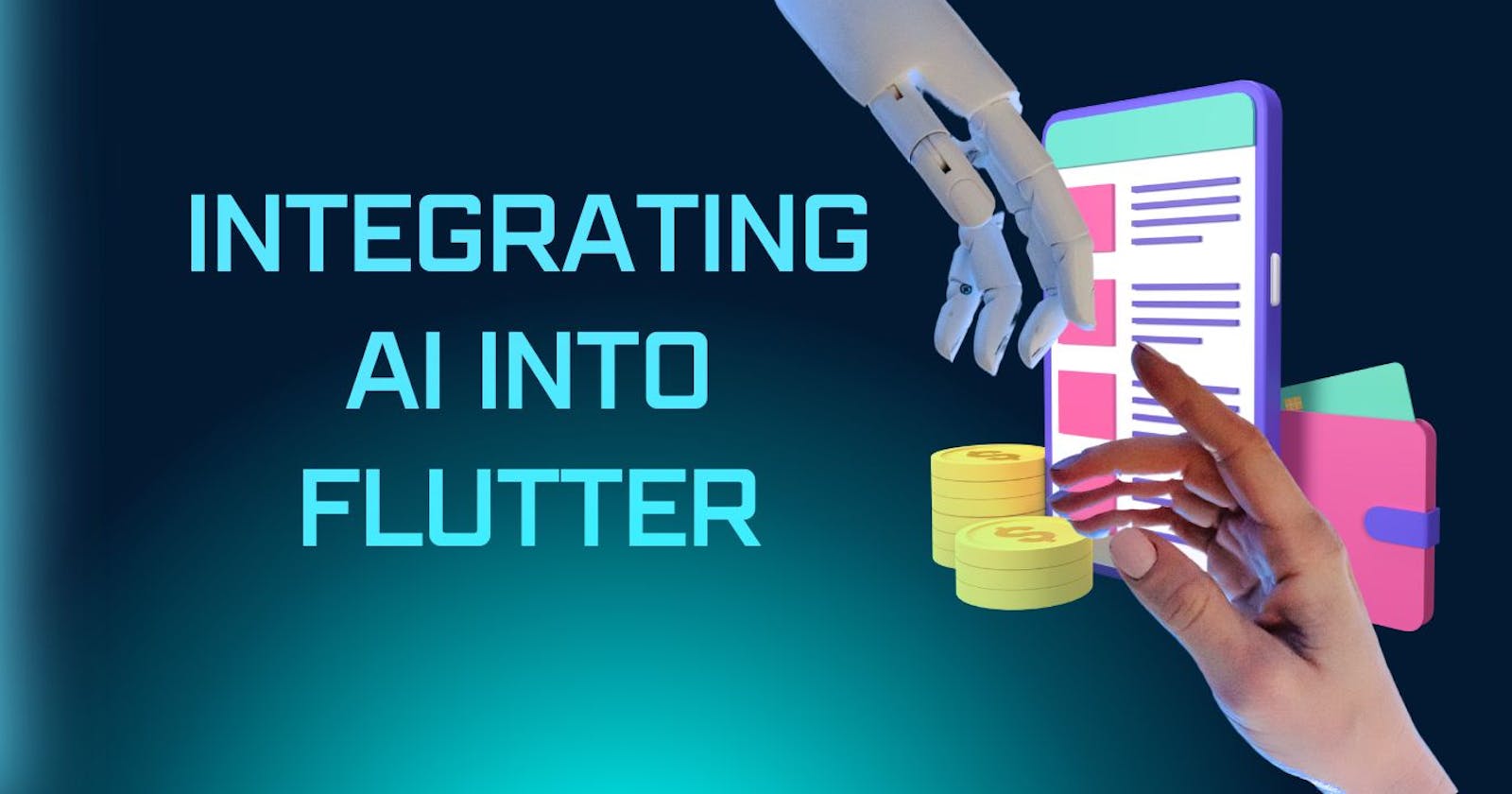Introduction:
In the rapidly evolving world of technology, artificial intelligence (AI) has emerged as an invaluable tool for revolutionizing organizational processes. Among the domains where artificial intelligence has significantly impacted is mobile application development. Nowadays, organizations are willing to provide personalized and customized solutions to their customers, which will help improve their user experience. For this, integrating AI into Flutter mobile applications has become a necessity. In this blog, we will discuss how AI capabilities can be integrated seamlessly into Flutter mobile applications.
What is Flutter?
Flutter is an open-source toolkit that is designed specifically for natively compiled applications for mobile, web, and desktop platforms using a unified codebase. It utilizes the Dart programming language, which enables developers to build next-gen and high-performance user interfaces. Flutter's simplicity, efficiency, and hot-reload feature make it an ideal choice for developing cross-platform mobile applications.
Why integrate AI into Flutter apps?
By integrating AI into Flutter apps, your organization can unlock many possibilities. The following are some of the reasons why there is a need to integrate AI into Flutter apps.
Providing Personalized User Experience
The algorithms of AI can help you understand users' preferences and behavior patterns. By utilizing this data, your organization can provide a customized and personalized user experience that meets every user's requirements, which would be vital in delivering an improved user experience.
Improved Decision Making
AI-driven analytics can simultaneously analyze large volumes of data and offer precise insights, thereby improving decision-making processes. This can assist organizations in understanding their users and making data-driven decisions regarding product improvements.
Natural Language Processing
Nowadays, AI-driven chatbots and virtual assistants can understand users' language and can assist them accordingly. This helps to enhance the user experience by providing a quick and accurate response to user's queries, which helps to improve their satisfaction level.
Image and Speech Recognition
Integrating AI algorithms into your Flutter app enables image recognition and speech processing capabilities. This will be very helpful in various applications, including image filtering, augmented reality, voice commands, and much more.
Methods for Integrating AI into Flutter Applications:
Now that we understand the importance of integrating AI into Flutter applications let's explore some of the methods for implementing it.
Pre-trained AI Models
One of the methods of integrating AI into Flutter apps is leveraging AI models available through platforms such as TensorFlow or Firebase ML kit. These models cover various domains, including image recognition, Natural Language processing, sentiment analysis, etc.
Custom AI Models
Creating specialized AI models tailored to specific use cases using Machine learning frameworks like PyTorch or TensorFlow and, later on, training and deploying models within the Flutter app can offer a more personalized and precise AI experience.
Cloud-based AI Services
You can leverage cloud-based AI services like Google Cloud AI or Amazon Web Services to integrate AI capabilities into your Flutter app. These Services can provide powerful APIs that can be seamlessly integrated with Flutter's native APIs.
Flutter AI Packages
If you are willing to take benefits of Flutter AI packages available in the Dart ecosystem, then specific libraries, like tflite_flutter or flutter_tts, extend your Flutter application's AI and Machine Learning capabilities and make it more manageable and efficient.
Key Considerations and Best Practices:
The following are some of the crucial and critical considerations you should consider while integrating AI into Flutter apps.
Data Privacy and Security
In the modern world, data is considered to be one of the most valuable resources. Therefore, you must ensure that all the data privacy measures are up to the mark and your organization follows all the best practices regarding data encryption, storage, and compliance with global data protection regulations.
Performance Optimization
There are several techniques available in the market, such as model compression, quantization, and edge computing, which can help enhance speed and reduce memory consumption. Hire Flutter developer to improve the functionality of AI models in your Flutter application by putting these strategies into practice.
Continuous Model Improvements
As the AI models continue to advance, monitoring them regularly, updating them, and enhancing them based on user feedback and evolving requirements is crucial. The main aim for your organization must be iterative development to provide a seamless user experience.
Conclusion
Integrating AI into Flutter app is an exciting and innovative approach that allows businesses to deliver intelligent and personalized experiences to their users. Flutter app development services providers can easily incorporate AI functionalities into your apps by leveraging various pre-trained models, custom models, cloud-based AI services, and Flutter AI packages. You can leverage the power of AI in the Flutter app to unlock the limitless possibilities and create cutting-edge mobile applications that stand out in today's competitive market.
